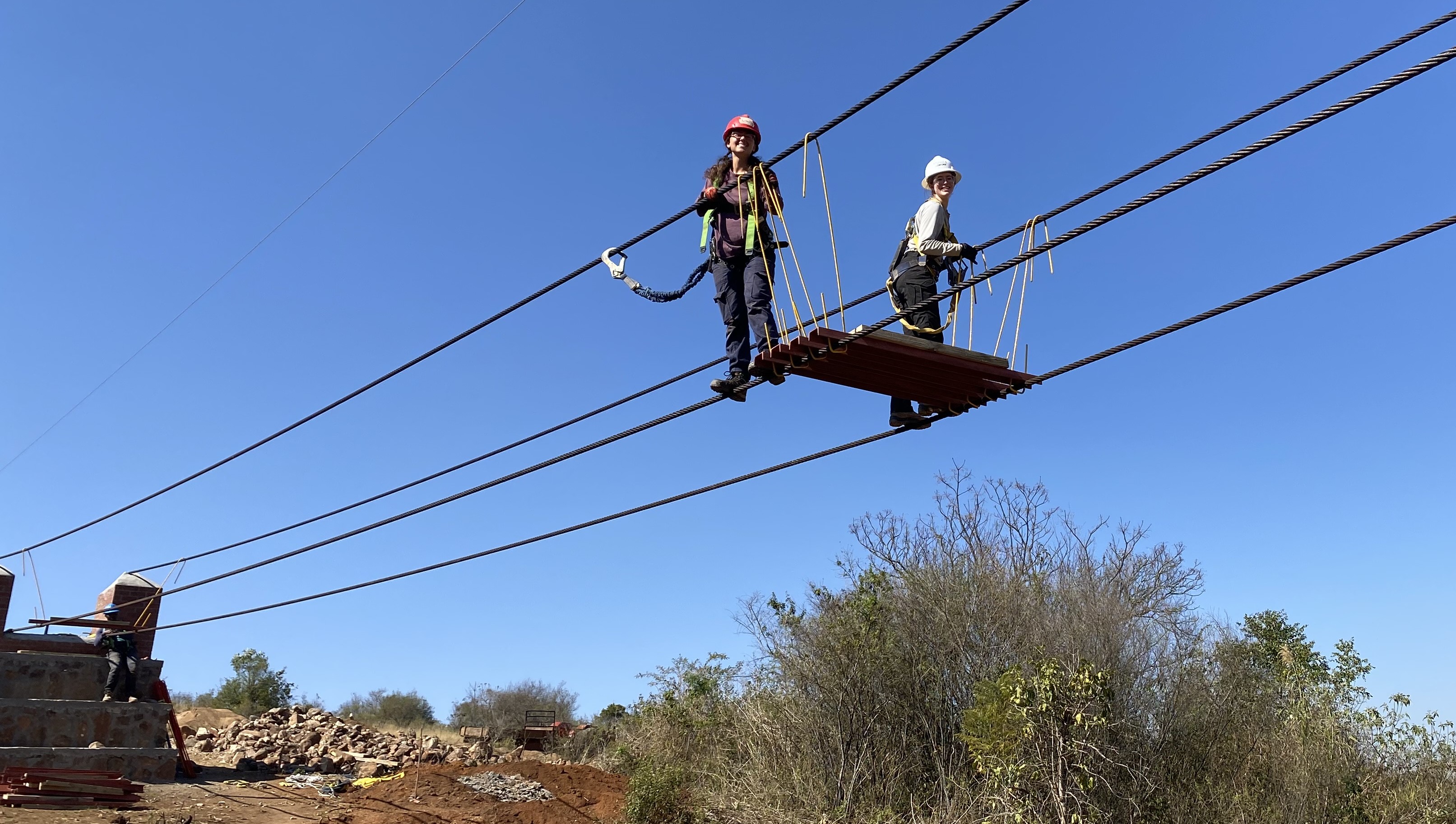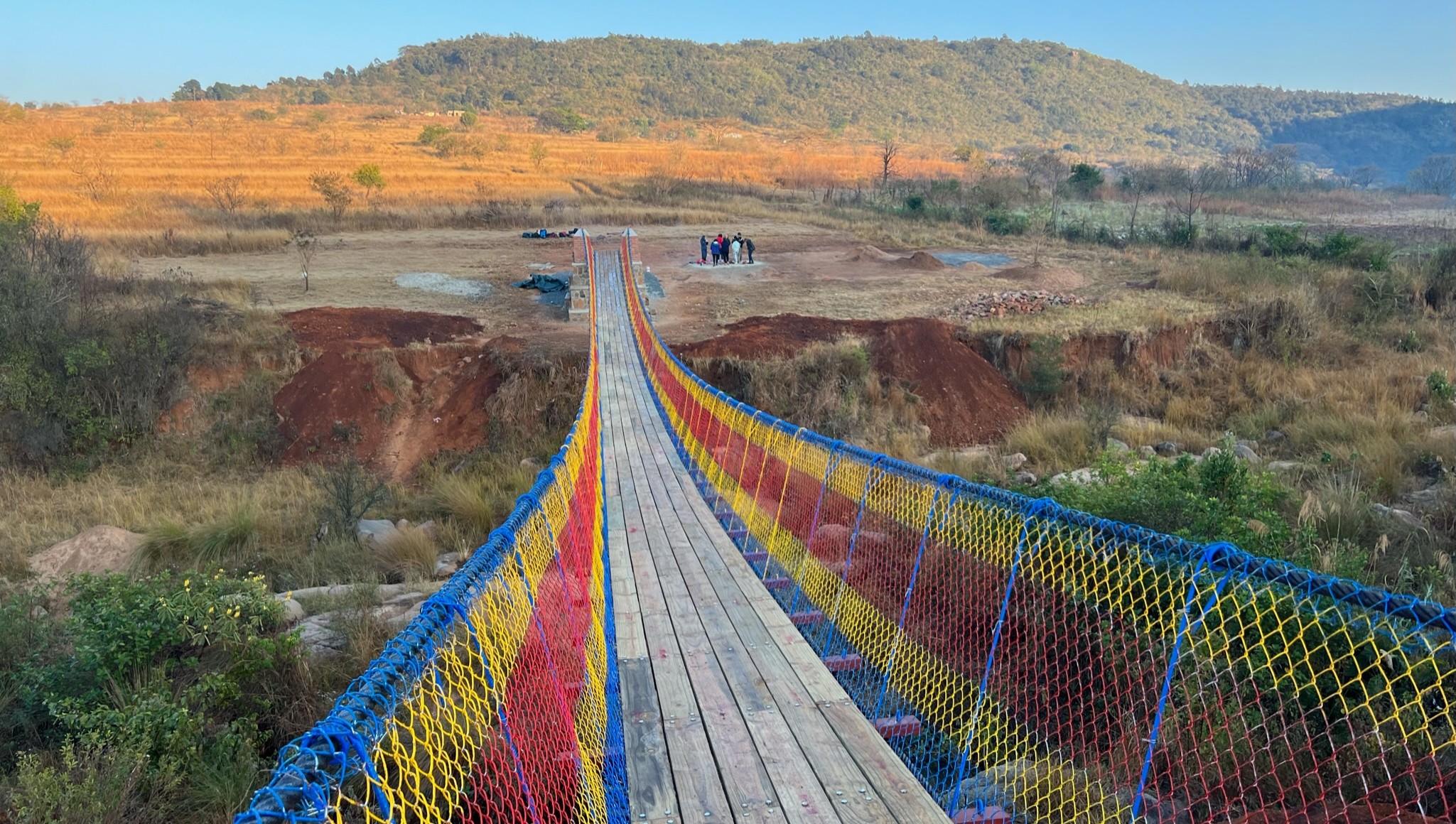Engineers in Action Bridge Program
DESIGN • TRAVEL • CONNECT • BUILD
Who we are
Rural isolation, or the inability to access essential resources such as hospitals, schools, and markets due to geographic barriers, directly contributes to global poverty. The mission of the Engineers in Action (EIA) Bridge Program and our University Chapter is to help these rurally isolated communities gain access to these essential resources with sustainable infrastructure by harnessing local expertise and global partnerships. In addition to the physical bridges, we hope to inspire members of the community to continue building connections with neighboring communities.
The Cornell University Chapter of Engineers in Action is a student-run project team with the College of Engineering that works with the non-for-profit organization Engineers in Action to design and build pedestrian footbridges for rurally isolated communities.
Our impact
Imagine starting every morning with a trek to central campus. Now imagine that same walk without bridges connecting North and South Campus to Central. Your daily commute would either double or become incredibly dangerous. This is the reality for many members of rural communities worldwide. Our team strives to impact communities in need by bridging gaps in education, healthcare, and safety through physical bridges. Each bridge our team builds makes a tangible difference in a community and increases equity across the world.
Summer 2019 Build
Before the summer of 2019, the community of Mdlasomi in the Manzini region of the Kingdom of Eswatini had seen the deaths of 17 people attempting to cross the Ngwempisi river. Of these deaths, several were young children attempting to get to school. Impassioned by these events, the community sought out and committed to working with EIA and the government of the Kingdom of Eswatini to build a bridge that will mitigate the risk associated with performing these simple daily tasks. For 8 weeks, the Cornell Team successfully designed and built a 95-meter suspended cable bridge across the Ngwempisi River with the community of Mdlasomi.
Summer 2022 Build
After two years of not being able to travel due to the Covid-19 pandemic, our team finally completed another bridge in Summer 2022. Over the two years where we didn't travel, we continued learning and designing bridges, and in the summer of 2022, our team sent 5 students to the Kingdom of Eswatini, where they spent 6 weeks turning designs into reality. The team worked with the Boyane and Zombodze communities to build a 100 meter footbridge that crosses the Mtilane River, which will help over 2,000 people including 1,200 schoolchildren cross the river safely.
Summer 2023 Build
This past summer 2023, our team built the Mandlakhe bridge in the Kingdom of Eswatini. Our team sent seven Cornell students where they spent six weeks turning designs into reality. Collaborating closely with local masons and community members, our team successfully erected a 50-meter suspended cable bridge spanning the Mhlanga River. This remarkable structure now provides vital access for more than 2,800 residents from the Mahlalini and Skhotseni communities to essential resources and opportunities, including clinics, schools, bus stops, maize fields, and community events.
Future Projects
We plan to send another team abroad during Summer 2024 to Eswatini. We are working hard to learn the foundations of bridge building and gain cultural awareness. Not only that but we are piloting a WASH (Water, Sanitation, and Hygiene) program in Eswatini to allow access to clean water. This includes installing pumps and distribution systems to bring clean groundwater to schools that currently lack access to clean water. The team cannot wait to move forward with this year's project, and it would not be possible without donors like you.
$5
Nuts and Bolts!
These will help attach deck boards to the cable crossbeams, making it possible to walk across the bridge!
$15
Paint for safety rails
Covers the cost for the beautiful colors of the Kingdom of Eswatini's flag to be painted on the bridge fencing!
$25
Safety Equipment
Covers the cost of Personal Protective Equipment (hard hat, gloves, and safety glasses) for one traveler, to keep them safe on the construction site!
$50
Nourishment
Covers the food expenses for one week, out of eight, for one traveler
$100
Bridge Cables
Covers the cost of one out of four total needed cables for the bridge.
$500
Shelter
Covers the living expenses for one traveler. Our team will stay with a host family in the community where we build the bridge!
$1,000
Concrete Anchor
Covers the cost of cement to be used for making concrete for the anchor, which will be more than 10 metric tons of concrete!
$1,500
Bridge Builder
Covers the flight cost for one traveler to get to the Kingdom of Eswatini.





